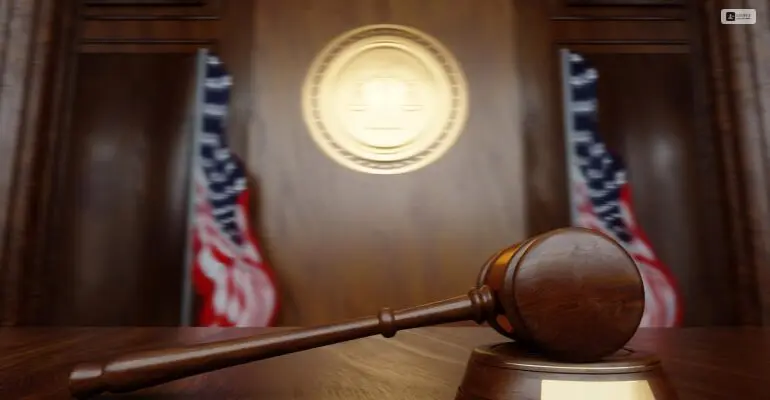
Are you a resident of the US State of Louisiana? Do you wonder what parts of Louisiana Law apply to you? Where do these laws originate? What are your rights under these wings of Louisiana Law?
Well, you must first learn about the Louisiana Constitution. It was passed in 1812. It is when Louisiana became the 18th state to enter the USA, which now has 50 states. The Constitution adheres to the Constitution of the United States. It protects the rights and outlines the responsibilities of members of the state. It also gives a detailed account of the structure and functioning of the state government.
This article gives you a simple yet detailed explanation of some of your most searched aspects, including “common law Louisiana,” “Abortion Law in Louisiana,” and “common law marriage in Louisiana.” Now let us take a quick look at the basics of Louisiana Law, including Federal Laws applicable in Louisiana.
Federal Laws Applicable To Louisiana

For starters, it is best to know about all of the federal laws that govern the workings of your state.
These five key federal law statutes apply to Louisiana and all other US states.
The United States Constitution

This is the supreme law of the land. It sets up the very base for the functioning of the federal government. It is also the supreme protector of the rights and freedoms of the citizens of the USA.
United States Code
This is a compilation of all federal laws and covers most subjects- criminal law, immigration law, civil rights and liabilities, and taxation laws of the nation. It establishes federal statutory law in the country.
Civil Rights Act, 1964
This prohibits discrimination due to race, color, religion, sex, or national origin in places of employment, public places, and educational institutions. It promotes equality and protects civil rights.
Americans with Disabilities Act (ADA)
This ensures equal opportunities and accessibility to disabled citizens of the USA. Discrimination against these individuals in employment sectors, public places, transportation systems, and all other areas is prohibited under this Act.
Clean Air Act
As the name suggests, this federal Act was passed to ensure a safe environment. It addresses air pollution and protects public health. It has provisions that control emissions from industries, vehicles, and pollution-emitting sources.
Louisiana Law: Provisions Of State Law

The source of Civil Louisiana law is the Civil Law System which is based on the Civil Code. The French, Italian, and Spanish civil law provisions influenced the Louisiana Civil Code that came into being in 1870.
In addition, Louisiana law includes statutes by the State Legislature and administrative orders by the state of Louisiana common law practices that have been interpreted and reaffirmed in court rulings.
Criminal Law Louisiana
The source of criminal law in Louisiana primarily is the statutes enacted by the Louisiana Legislature. The Louisiana Criminal Code heads these statutes. The primary statutory body lays down provisions against crimes and their respective penalties in Louisiana state.
More specific versions of criminal laws are given in the Louisiana Revised Statutes. It has details of criminal activities and guidelines for their prosecution. These statutes address issues of theft, assault, drug offenses, homicide, sexual offenses, property crimes, etc. The Louisiana Supreme Court interprets these criminal laws and reaffirms their scope.
Common Law Louisiana
The legal system of the state of Louisiana runs on principles of civil law. However, it does have certain aspects of common law.
Manifestation of Louisiana Common Law

a. Property Law: Louisiana Civil Code lays down the foundation for property law. But the common law concept of usufruct is followed here. According to this, Louisiana allows a person to use another person’s property.
b. Louisiana Tort Law: Louisiana’s civil law is influenced by tort law. For example, it incorporates the concept of negligence and duty of care for others.
c. Louisiana Commercial Law: This includes common law principles of “good faith” in the state contract law.
d. Precedents as a part of state law: It follows the concept of stare decisis. The courts consider previous court decisions to be a persuasive force in the latter judgments.
Statutory Abortion Law In Louisiana
Here are some key elements of Louisiana Abortion Law
- Louisiana had banned most abortions once the heartbeat of the fetus can be detected. This was called the “heartbeat bill.”
- Louisiana abortion law requires a mandatory waiting period before the procedure. The one undergoing it will be counseling and written materials about alternatives and their potential risks.
- Louisiana State has a law supporting parental involvement for all minors seeking an abortion.
- Louisiana states that ultrasound is mandatory before an abortion.
- Louisiana has various requirements for an abortion clinic to remain functional. It includes licenses, meeting health standards, and also stipulated physician credentials.
Wrapping It Up!
In conclusion, Louisiana law is a unique legal system rooted in the principles of civil law and incorporates elements of common law. The Louisiana Civil Code is the foundation of the legal framework and adjudicates a wide range of matters. This legal system originates in the “French Napoleonic Code” and therefore stands a step ahead of the common law followed in other states. The distinctive features of the codified and uncodified Louisiana law have an impact on various aspects of the life of the citizens.
Read More:


